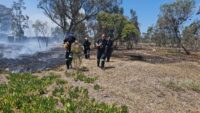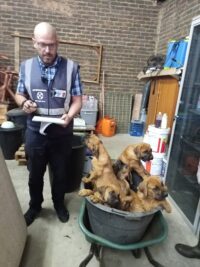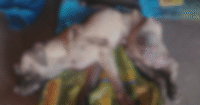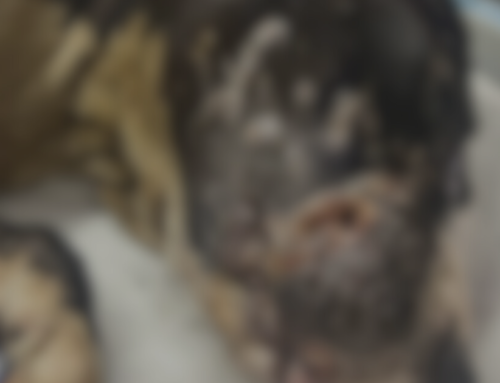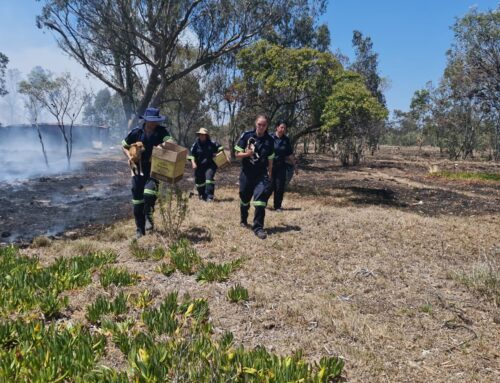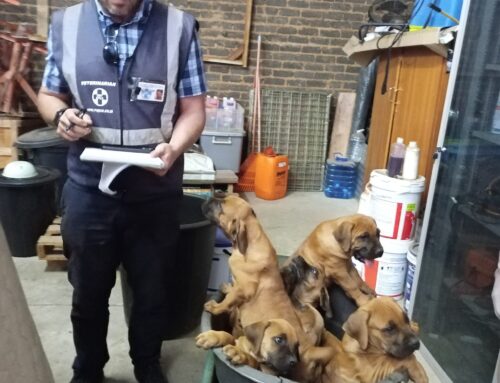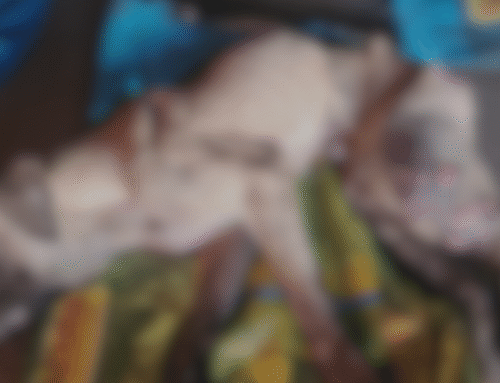Inspectors from the National Council of SPCAs (NSPCA) Wildlife Protection Unit carried out a follow up inspection at a lion breeding farm in Lichtenburg in the North West Province and found disturbing conditions – again, lion cubs were found to be in devastating physical condition.
In April 2019, the NSPCA’s Wildlife Protection Unit attended to a complaint at the same farm in Lichtenburg where they found lions being kept in appalling conditions. Issues such as small enclosures and inadequate shelter, no provision of water, overcrowding, and filthy and parasitic conditions were noted in the camps that contained lion, caracal, tiger, and leopard. 27 of the lions had mange and the caracal were obese and unable to properly groom themselves. The Inspectors were horrified to find two lion cubs that were unable to walk and appeared to be showing signs that they were suffering from a neurological condition. The NSPCA removed the two cubs for assessment and veterinary treatment by a veterinarian with a special interest in carnivores.
The NSPCA issued a warning and laid charges against the owner and the staff in terms of the Animals Protection Act No 71 of 1962.
In July 2019, the NSPCA undertook a follow up inspection at the same facility. The Inspectors obtained a warrant and found minimal improvement of the conditions on this farm. A lion cub was found dead and stored in a cold room and two more lion cubs were found concealed in a crate in a warehouse showing similar symptoms to the two cubs that were removed in April. The facility’s veterinarian euthanased the two cubs. Two carcasses were removed for post mortem examinations.
On further investigation, the NSPCA found a chest freezer with approximately 20 carcasses of lion and tiger at varying ages. The NSPCA removed a further five carcasses for post mortem examinations to determine the cause of death, and will be laying further charges in terms of the Animals Protection Act No 71 of 1962.
“With the release of The Lion King and the tribute to lions during World Lion Day this month, the rest of the world is celebrating these majestic creatures. Here in South Africa, where lions are indigenous and a massive part of our heritage, we are condemning thousands of lions to a life of captivity, where their basic needs are not being catered for, and we are subjecting what is globally known as the king of the animal kingdom to a pathetic life in a cage, waiting for death” said Senior Inspector Douglas Wolhuter, manager of the NSPCA’s Wildlife Protection Unit.
The two cubs that were removed in April 2019 have been under intense veterinary treatment and have improved in leaps and bounds. Two cubs that were unable to stand, and were paddling on the ground to try and move away from their own faecal matter are able to stand and even take steps, this highlights that there are major pitfalls in the knowledge and care that captive lions are given at this particular breeding facility – and many more like it.
The trade of wild animals opens the door to abhorrent cruelty, whether it be intentional or negligent. Where there is money and animals involved, there is bound to be cruelty.
If you are as passionate about animals and their well-being as we are, consider supporting our causes by donating.
Latest News Posts
Will You Be the One Who Takes Action?
Most people will scroll past this. But will you be the one who stands up for animals?
Animal welfare isn’t always in the spotlight, but it changes lives – for every neglected, abused, or suffering animal we help. Our teams work tirelessly, often behind the scenes, ensuring animals across South Africa are protected.
This work is relentless. The challenges are immense. But with more hands, hearts, and resources, we can do even more.
The equation is simple: the more supporters we have, the greater our reach, the stronger our impact.
Be part of the change. Become an NSPCA Project Partner today. From just R50 per month, you can help ensure that no animal suffers in silence.

